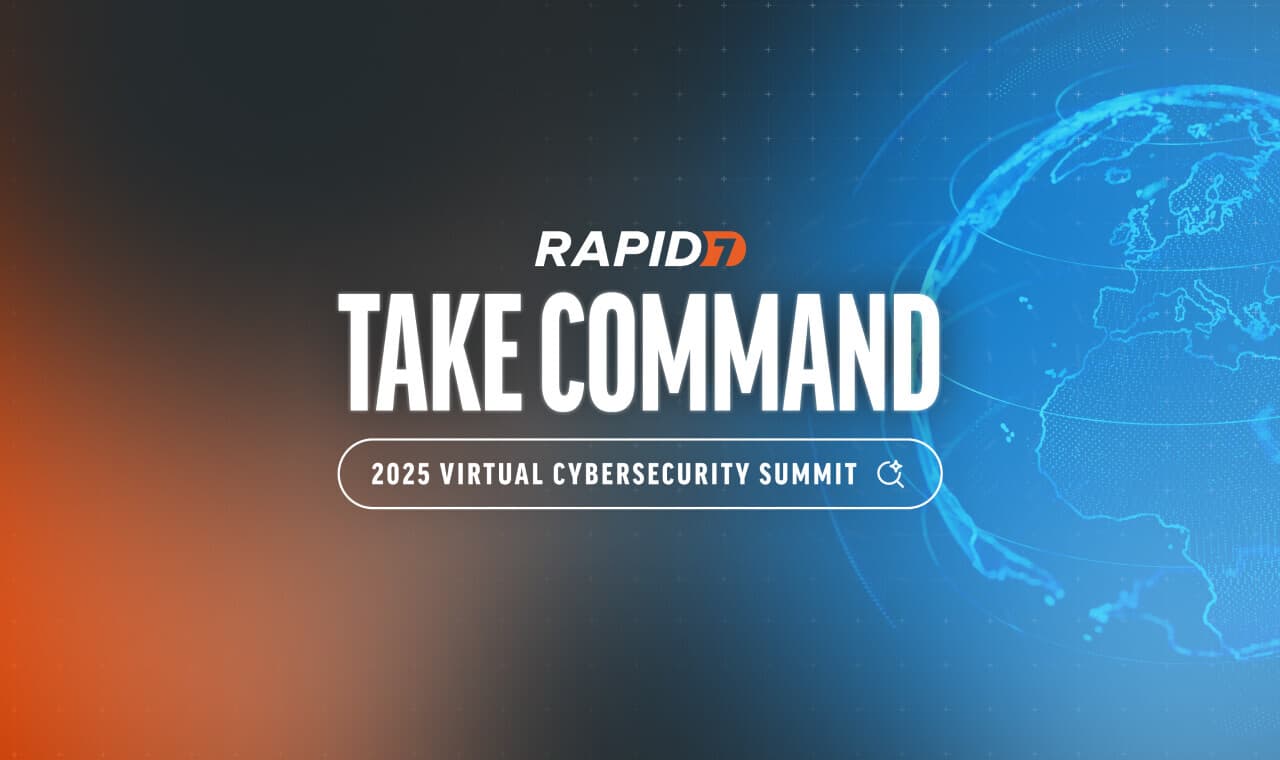AI has become a critical force in cybersecurity — not just for innovation, but for survival. At the Take Command 2025 Virtual Cybersecurity Summit, the AI in Action session brought together product, engineering, and cloud experts to explore how Rapid7 is deploying AI to streamline detection, triage, and security operations across complex environments.
Moderated by Karl Lankford, Senior Director of Sales Engineering at Rapid7, the session featured:
Stuart Millar, Principal AI Engineer, Rapid7
Kelcey Morgan, Senior Manager, Product Management, Rapid7
Steven Warwick, Solutions Architect, AWS
Together, they shared how AI is already reshaping modern SOCs — and where organizations can start applying it safely and strategically.
AI is driving automation across the SOC
The panel opened by exploring how AI is being used to automate early-stage triage, risk scoring, and repetitive decision-making.
Kelcey Morgan explained:
“We have a lot of manual, repeated decision-making happening every day and we want AI to help eliminate that.”By training models on historical analyst workflows, Rapid7 is accelerating time-to-decision and reducing alert fatigue, without removing the analyst from the equation.
It's not about more tools — it's about smarter integration
Rather than introducing another standalone AI feature, the team focused on embedded intelligence across existing workflows.
Stuart Millar emphasized:
“The way we’re approaching AI is by integrating it natively into the workflows you already use — not asking users to change their behavior.”This approach allows teams to realize value faster and avoid the burden of learning new interfaces or managing disconnected tooling.
Use AI where it can reduce risk, not add to it
AI introduces its own risks, especially when not governed properly. The panel discussed how the TRiSM (Trust, Risk, and Security Management) framework is guiding how Rapid7 develops and deploys AI features.
Steven Warwick noted:
“You want to use AI where it helps you make better decisions — not automate the wrong ones faster.”This theme echoed across multiple Take Command Summit sessions, where AI was consistently framed as a support mechanism, not a replacement for skilled human judgment.
Survey insight: AI is a top concern for security teams
According to the post-event survey, 85% of respondents were moderately to extremely concerned about adversaries using AI to enhance cyberattacks. At the same time, nearly half of organizations are still early in their own adoption, citing integration complexity and resource gaps as leading barriers.
Start small, measure impact
When asked how organizations should begin adopting AI, the panel’s advice was consistent: start small, focus on repeatable tasks, and measure impact.
Kelcey Morgan said:
“Find those high-volume, low-complexity areas of your SOC — that’s where AI can make an immediate difference.”The session ended with a reminder that AI is a tool — but when used strategically, it can free up time for deeper investigation, proactive defense, and long-term planning.
Watch the full session on demand
Whether you're just starting to explore AI or looking to expand how you use it, AI in Action offers practical guidance from the teams building and using it every day.
